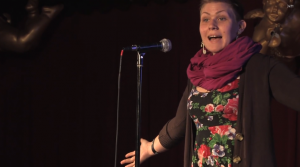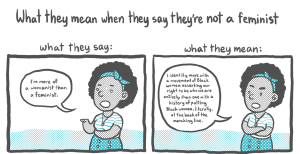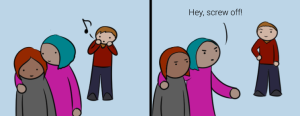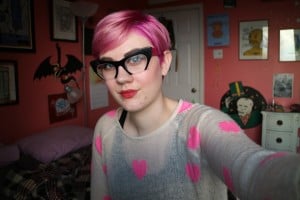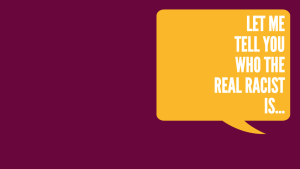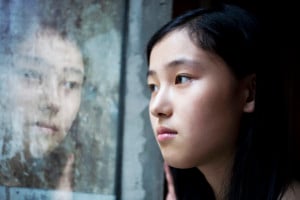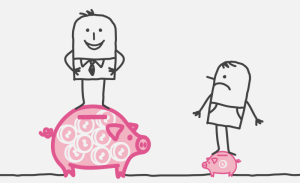Originally published on SOGI Naija and cross-posted here with permission.
Hello. I’m a queer, American born, Naija blooded individual. I was born and raised in the American south and understand that there are huge differences between growing up queer in the diaspora and growing up queer in Nigeria itself.
Nevertheless, we all have Nigerian parents.
They’re the parents who never let you get too proud but boast of your accomplishments, the ones who let you know that 94% was cute and all but you should still shoot for 100% next time, the ones who see your clothes and hair and make that face where they sort of half-smile politely and half side-eye you for days and wonder about your circle of friends, the ones from whom you tend to seek a sense of approval that’s hard to conjure up on your own.
Ok, this could all just be me, but I have a feeling people can relate when I say my number one fear in coming out to my parents was that they’d simply be ashamed. I feared that I’d be written off and put aside somewhere, still loved but not supported or accepted or worthy of their pride.
My mom keeps photos of my sisters’ weddings—a man in a tux, a cake, and a banquet for all three sisters. If a visitor saw our family picture on the wall and asked about us kids my mother would be happy to present photos of the three married daughters.
If I get older, marry a woman, have a wedding, would those pictures be up on her wall? Would my kids be her grandkids? Would they have a place in her album? If someone asked my mom “So how’s June? Is she married too?” would my mother shake her head before answering? Truth is, I don’t know and am tired of caring. But when I was asking myself all these questions I worried that I’d be that one kid she glosses over when someone asks, “So how are your children?”
I’m leaving my father out here because he died some time ago, but that’s another thing that bites me. I don’t know how he would’ve reacted if I came out—I never got the chance to tell him.
The other day I was missing him terribly. When I went to my mother for comfort she said, “When my father died I just thought of what he would have wanted me to be doing.”
For me that isn’t comforting because I do not see myself as the child my father thought he had. I do not see myself in ten years being where he wants me to be because if I were my peace of mind, my identity, and my self-esteem would be at stake.
A couple of weeks before he died we were watching Ellen and she was with kids and he said something to the effect of, “Why do they let someone who is openly lesbian be around kids?” I still think about him saying that. I feel that on some level, he would never be proud of me if he could see me now. And I don’t have him around to tell me otherwise.
This is turning into a long sort of negative ramble and I haven’t even gotten to my point yet. Perhaps I should’ve put a disclaimer—I’m wordy as fuck so bear with me.In any case, my point with all this is that the fear of somehow shaming my parents is what made them the last people I would’ve come out to six years ago.
But now? I’m starting to realize that for me, visibility needs to begin at home.
I say this because I’ve noticed that parental/familial homophobia stings more than any other kind. Maybe that’s in part influenced by Nigerian culture. I don’t see cutting off my family because they do or say things that hurt me as an option.
I once tried to talk to a white acquaintance about wanting to talk about the anti-gay Nigerian bill with extended family and he simply said “Fuck ‘em”. In America there’s this idea that if your family doesn’t accept you as you are, then balls to them!
But to me it’s not an option. My family is my foundation, and when I don’t have the space to be visibly queer with them, I don’t have the space to be visibly queer with anybody.
I say this because when I go out and I hear someone slinging around homophobic slurs, I can quickly label them as someone I have no further need to associate with. But when my sister repeatedly uses “dykey” as an adjective, I can’t just conveniently ignore her existence. Unless I speak up and make it clear that I’m one of the people she’s insulting when she says that, I’m going to have to hear it again when I’m trying to enjoy a family barbeque, and again when I’m trying to relax and watch television, or again when we’re at a day out shopping.
Every place where I should be enshrouded in the support and love of my family could with one word become a place where I feel attacked and defenseless. The only thing I can do to remedy the situation is remind her that when she says something disparaging about people who are LGBTQ, she is badmouthing her own flesh and blood. And since she ain’t about trying to lose me as a sister, hopefully she’d come to respect that.
The same applies to the situation with my mother. Before I was out there was a lot of direct talk about how gay people are doing something abominable and unnatural and unmentionable. And to be honest, my mother has no qualms about saying any of this to my face to this very day.
But I feel as if me being out forces her to be less judgmental. Now I know that when she thinks of gay people, she doesn’t think of limp-wristed white boy junkies whose daddies never raised them right.
She’s got to think about me.
And even if she never accepts this as part of who I am, at least she knows that you don’t have to be an attention-seeking, coddled, American deviant to be queer. I can also be the prudent, hard-working, straight-A student, who still tries to learn Ika and the proper way to cook pepper soup with fish, who loves her family and isn’t interested in rebellion. If that’s the only little shard I can chip off the iceberg of parental homophobia, I’ll take it.
It’s better than being unheard, unseen, and unknown.
The above was submitted as a guest post to SOGI Naija, a blog dedicated to the lives of LGBTQI people in Nigeria and the Nigerian Diaspora. For my post, entered under the pseudonym “June Mebei”, please click here.
Jarune Uwujaren is a Contributing Writer for Everyday Feminism. A Nigerian-American student recent grad who’s stumbling towards a career in writing, Jarune can currently be found drifting around the DC metro area with a phone or a laptop nearby. When not writing for fun or profit, Jarune enjoys food, fresh air, good books, drawing, poetry, and sci-fi.
Search our 3000+ articles!
Read our articles about:
Our online racial justice training
Used by hundreds of universities, non-profits, and businesses.
Click to learn more





